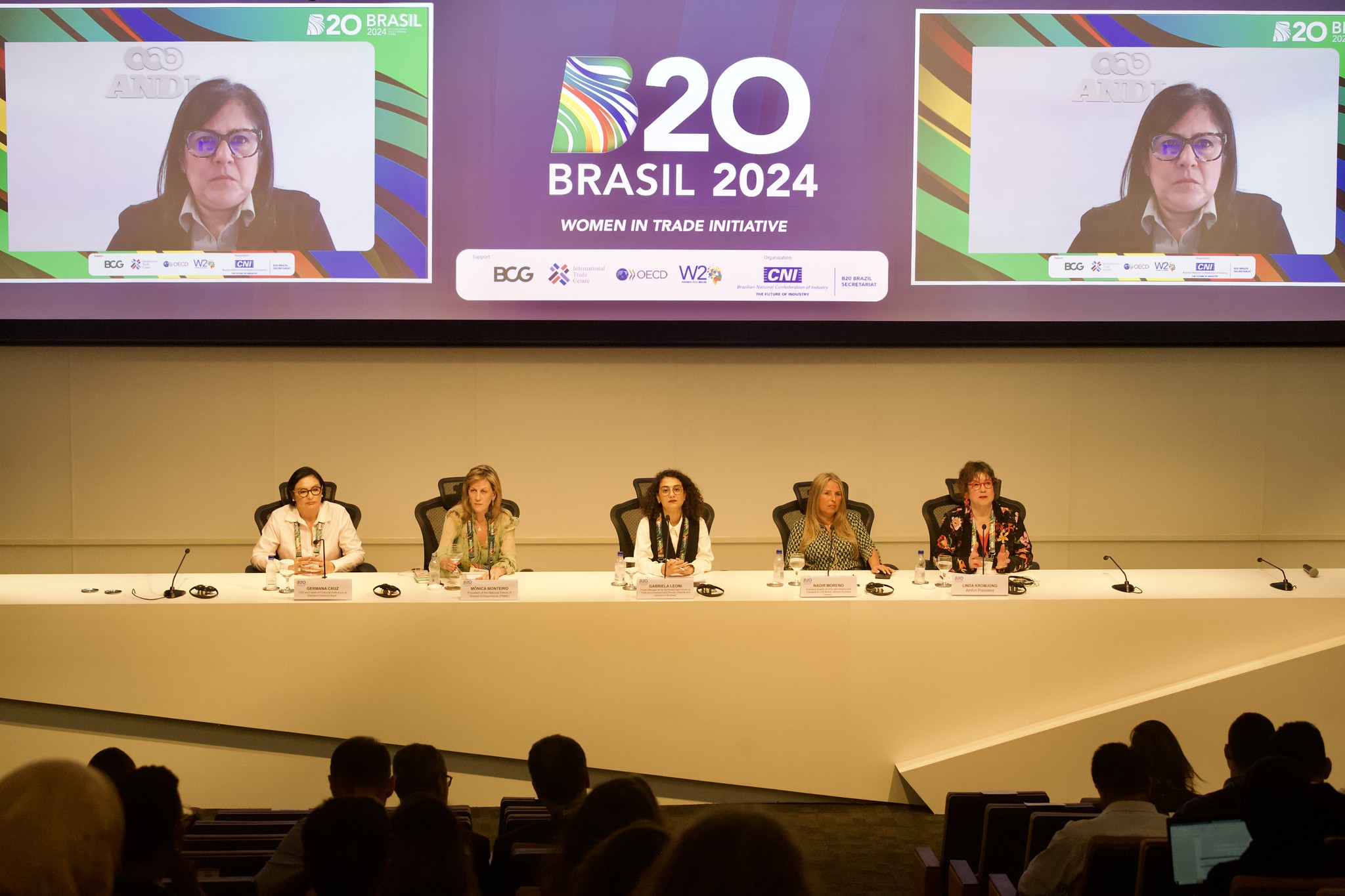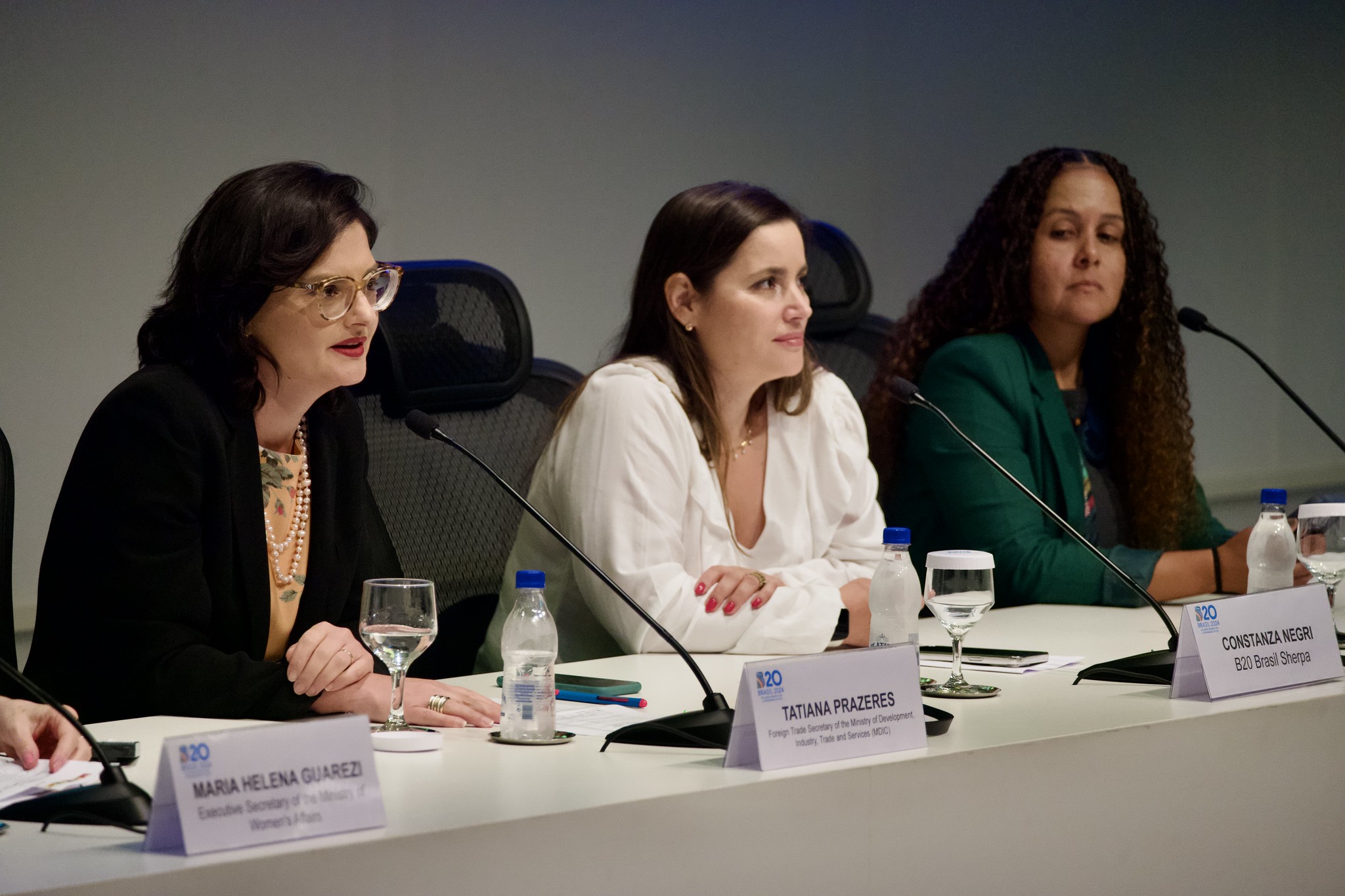Women in international trade: B20 coordinates unprecedented G20 debate
In a workshop attended by 27 countries, the Business20 Engagement Group discussed the status and needs of women in the business world. Among the topics were the local, regional, and global scenarios, as well as the role of governments and markets in implementing incentive policies.

According to data from the Brazilian Micro and Small Business Support Service (Sebrae) 45% of individual micro-enterprises in Brasil are run by women. When it comes to medium and large businesses, the percentage of women who own companies drops significantly. The International Trade Center (ITC) indicates that only 14% of exporting companies in the country are predominantly owned by women.
On a global scale, the figure is not very encouraging. Even with such differences between the G20 countries, the inequality between men and women in foreign trade is similar. Internationally, around 20% of exporting companies are owned by women, the ITC concluded.
What can explain these figures and what is the role of States and the market in tackling this inequality? This was the guiding theme of the event "Women in Trade Initiative", promoted by Business20 (B20) on Tuesday (23) in Brasília. The meeting took place at the National Confederation of Industry (CNI), the institution responsible for coordinating the engagement group during Brasil's G20 presidency.
"A greater participation of women in international trade has an impact in two ways: it generates an increase in innovation, productivity, improved economic benefits for companies and countries; and it brings greater economic empowerment to women themselves," said Constanza Negri, chair of the B20, pointing out that having this debate through the lens of the G20 is an unprecedented initiative.
Debates
Representatives from 27 countries attended the meeting. The opening session, "Towards a gender-neutral trade policy", featured Marion Jansen, Director of Trade and Agriculture at the Organization for Economic Cooperation and Development (OECD), CNI's partner in organizing the event. According to the OECD, there is an additional gap that cannot be explained by the characteristics of companies alone but may be related to various obstacles faced by women when involved in international trade, including limited access to finance, time constraints due to family responsibilities and lack of access to a network of professional contacts.

The next two panels, made up entirely of women panelists and mediators, discussed the global, regional, and local circumstances that hinder women's rise in the market, and the private sector's perspectives regarding the issue. It also highlighted the impact of women's triple shift on their ability to perform fully in business; the networking conditions for female entrepreneurs; and the benefits of digitalization and the use of the internet for women's businesses.
Furthermore, when dealing with the roles of government and companies, the need for an intersection between the two spheres in the search for solutions was highlighted, with public policies and internal incentive policies, through consultancy, training, credit and the purchase of women's businesses. One example showcased the Chilean government's "ProChile - Mujer Exporta" program, coordinated by the Andean country's Ministry of Foreign Affairs. The program consists of research, diagnostics and networking, in commercial cooperation with various countries on the American Continent.
The need to include women in policy decision-making processes and to discuss gender across the board were also on the agenda at the B20 workshop.
Dialogue between groups
Participating in the activity were Janaína Gama, co-head of the Women20 Engagement Group, and Tatiana Prazeres, Foreign Trade Secretary at the Ministry of Development, Industry, Trade and Services (MDIC), who coordinates the G20 Trade and Investment Working Group. Both spoke at the opening of the event. The collaboration between the groups and exchange between the Sherpa Track and the G20 Social is closely connected to one of the main objectives of G20 Brasil.